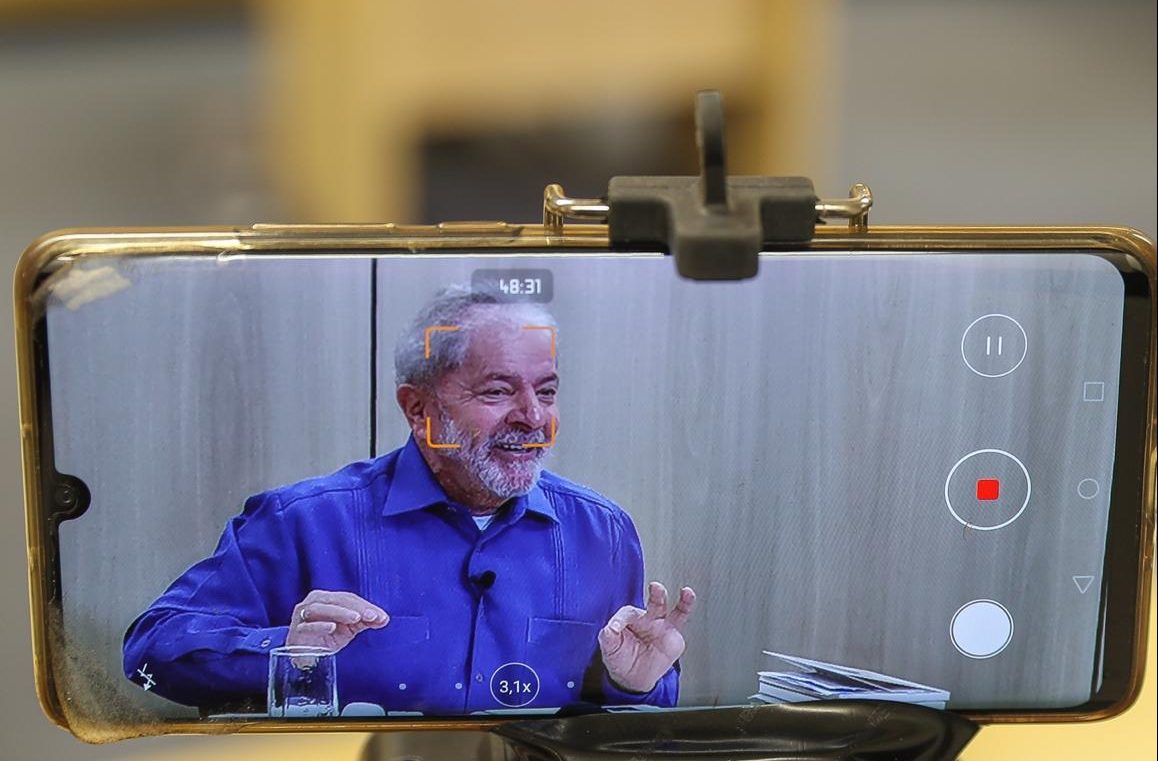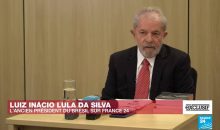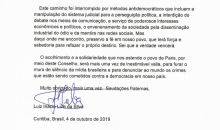Exclusive | Lula: “Brazil became the laughing stock abroad”

Wednesday, October 23rd. A sign in the Free Lula Vigil, a few feet from the Federal Police headquarters in Curitiba, reads: 564 days of resistance. That’s the number of days Brazil’s ex-president Luiz Inácio Lula da Silva has been deprived of his freedom, as a result of a prosecution he constantly calls “a lie,” a case spearheaded by the then judge Sergio Moro and the state prosecutor Deltan Dallagnol.
The Brasil de Fato team filed a request to interview the ex-president more than six months ago. After a decision by Carolina Lebbos, the deputy judge overseeing Lula’s case after Moro stepped down, Lula decides to whom he grants interviews.
In order to access the Federal Police building – which was ironically built and inaugurated during Lula’s Workers’ Party government –, registration, equipment search, and punctuality are required. Lula is being held in an individual cell, where he has a routine of physical exercise and reading.
Our meeting with the ex-president lasted two hours and took place on the same day the country’s Supreme Court started a debate about whether it is constitutional to arrest individuals who have a criminal conviction upheld in an appeals court, but before exhausting all remedies. The country’s top court was expected to issue a ruling by the end of the same day, but the justices adjourned the session and resumed discussions on the next day. Now, the final ruling may be adjourned until November.
The Supreme Court ruling can define the future of Lula and 5,000 other prisoners around Brazil.
For the ex-president, the Supreme Court justices’ task is to guarantee that the Constitution is respected. “This is why I am calm about the Supreme Court ruling. They are not debating about me, but about following the Brazilian Constitution,” Lula said as soon as he met with our team.
Even before the interview started, the ex-president mentioned the Supreme Court’s potential ruling. During the interview, he also talked about land reform, attacks against public policies, pension reform, sovereignty, the challenges for the left, his own life, books, and culture.
Watch the interview below:
Brasil de Fato | Edition: Camila Maciel, Daniel Giovanaz, and Vivian Fernandes | Translated by Aline Scátola | English version reviewed by Zoe PC



